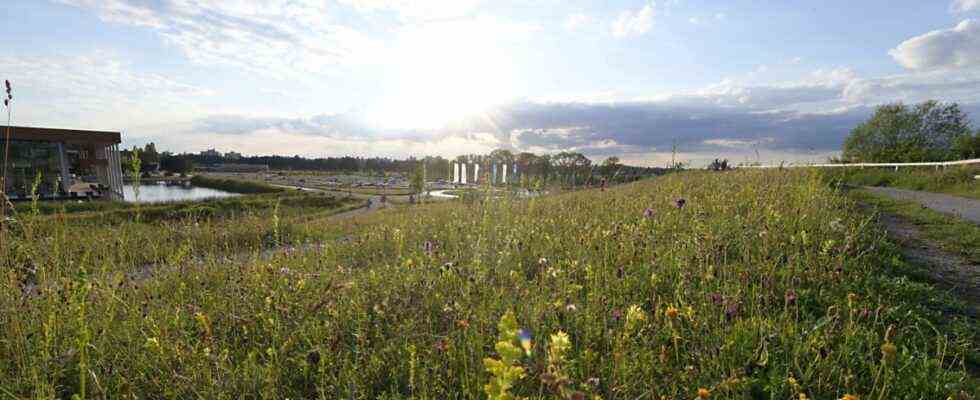Hurricane-like storms and extreme temperature fluctuations, prolonged drought here and torrential rain there – nature is increasingly going to extremes. That is why many people are gradually getting the frightening feeling that the often-invoked climate catastrophe is already underway. “Coping with climate change will remain an existential challenge for us and for the next generations,” states Thomas Kiesmüller, spokesman for the citizens’ initiative (BI) fresh air supply.
In a letter to Lord Mayor Dieter Reiter (SPD), the district committees and the municipalities in the south-east of Munich, the BI therefore emphatically advocates joining forces to avert impending dangers as far as possible. The local politicians in the Ramersdorf-Perlach district have now “unanimously and expressly” endorsed such cross-community cooperation.
According to Kiesmüller, the climate impact and risk analysis by the Federal Environment Agency from June of this year warned against, among other things, fatal heat loads in cities. The Munich metropolitan region is a specific case. An existential function in terms of cold air supply and air purification – along with other green corridors – has the Hachinger Tal as a fresh air corridor for the urban climate.
According to the intermunicipal structural concept Hachinger Tal, however, around 22 hectares of arable land in this fresh air corridor are to be converted into a commercial area, which significantly jeopardizes the climate-ecological function of this green corridor, warns the BI. The influential owner family group presumably has an extreme increase in value in mind with the conversion of agricultural land into commercial space and will therefore – as in other cases – try to convince politicians and authorities of the project with all means.
A climate report is currently being drawn up on the structural concept and should be presented at the end of 2021. Then the political process of weighing up individual and general interests should begin. “According to the objectives of the regional plan and state development program, this project would have to be stopped,” the citizens’ initiative believes. However, based on previous experience with political decisions on environmental and health protection, this is by no means certain.
The BI assumes that the Free State will promote the fresh air supply in large cities
The topic of climate and environmental protection is only one topic among many other topics that cannot be dealt with well within the narrow local boundaries. “Cross-municipal cooperation is also urgently required everywhere on traffic, roads and cycle paths, mobility, infrastructure, water management, open spaces, recreational areas, work, living and so on”, warns the BI. As well-functioning examples, she refers to the initiative of seven Würmtal communities and three Munich city districts in the “Future Vision Würm Region 2035+” charter and the “Intercommunal Concept Munich North”. Here, the planning association for the outer economic area of Munich advised the representatives of the state capital and the neighboring municipalities and districts in the north of Munich and moderated the process.
In a letter dated June 8, the planning association informed the BI that it would work for regional management projects if the municipalities involved took the initiative. The BI therefore comes to the conclusion: “We are assuming that the Free State of Bavaria will particularly support projects such as the fresh air supply in metropolitan regions after, for example, Prime Minister Markus Söder wants to finance the revised climate protection program and the corresponding measures.”
The citizens’ initiative Frischluftzufuhr therefore urges the recipients of your letter to take the first step and to deal with the proposal for a “Regional Management Munich Southeast” in the responsible committees of the municipalities and the city, to set up for overarching future tasks and to deal with the topic of environmental and To begin climate protection. The members of the Ramersdorf-Perlach district committee had nothing to add to this – except for their unreserved approval for such a cooperation project.

